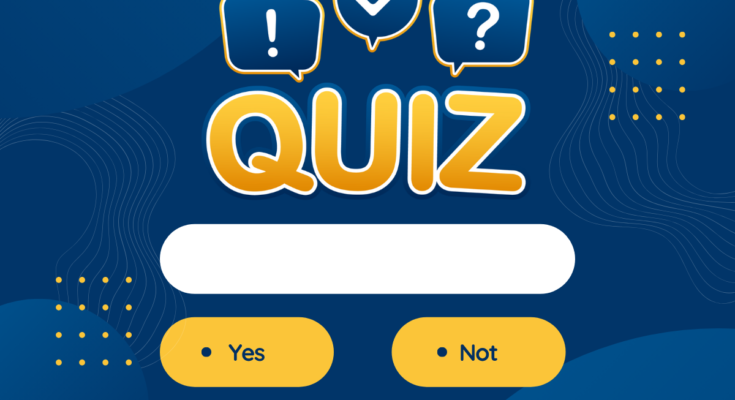The Power of Self-Perception in a Swipe-Scroll World
We’ve all done it.
Clicked on a quiz that promises to reveal your “true personality” or which BTS member you’re most like. It starts as a joke. Three minutes later, you’re sitting there wondering if you’ve been misreading yourself your whole life.
But what if that feeling isn’t entirely random?
What if the right question, at the right time, can actually nudge your self-image into motion?
Let’s explore how digital quizzes, identity, and anonymous tools like Secret Note are quietly reshaping how Gen Z and young millennials see themselves, and why it might be a good thing.
Why We Click: The Real Psychology Behind Online Quizzes
Curiosity isn’t random, it’s how we learn who we are.
When you click on a quiz, you’re not just killing time. You’re seeking something, validation, surprise, insight, maybe even relief.
Unlike school tests, these quizzes don’t grade you.
They mirror you.
- “Which Stranger Things character are you?” isn’t really about Hawkins. It’s about how you handle pressure.
- “Pick your favourite aesthetic and we’ll tell you your inner vibe” isn’t just fun, it’s about fitting your scattered moods into a coherent story.
At a time when identity is fluid, pronouns, aesthetics, career pivots, even friend circles, quizzes offer micro-moments of reflection.
Fast. Frictionless. Personal.
That’s what makes them addictive.
Can 10 Questions Change Your Mindset?
Sometimes the right question does more than the right answer.
Let’s say a quiz asks: “What scares you more: being seen or being misunderstood?”
That question alone can haunt you for days.
And that’s the point.
Well-designed quizzes don’t just categorize you.
They provoke you.
They act like digital mirrors, prompting you to pause, name what you feel, and sometimes, rewrite the script you’ve been living by.
It’s not about the outcome.
It’s about the pause between question and answer, where self-perception gets reshaped.
Self-Perception Is a System, Not a Snapshot
We don’t “discover” who we are. We construct it, bit by bit.
Here’s the quiet truth most people miss:
You’re not who you are. You’re who you think you are.
And who you think you are is shaped by stories. The stories your friends tell about you. The stories your Instagram bio implies. The anonymous notes you secretly hope were about you.
Even those 8-question quizzes on “What Kind of Friend Are You?”
Each answer nudges your self-perception just a little.
That’s the power of micro-reflection.
Small cues. Repeated often. Changing how you show up in real life.
The Rise of Quiz Culture in Gen Z Digital Spaces
Quizzes are the new icebreakers. But also the new journals.
For Gen Z, identity isn’t fixed, it’s experimental.
One day you’re “That Girl,” the next you’re “just tired.”
That’s why digital spaces like TikTok, Pinterest, or even anonymous platforms like Secret Note are filled with vibe quizzes, aesthetic prompts, and anonymous confessions.
They’re all doing the same thing:
Helping people say, “This is how I feel today. And maybe that’s who I am right now.”
The best part?
There’s no pressure to be consistent.
Just like Secret Note doesn’t save your messages forever, identity doesn’t have to be permanent. You get to explore, erase, and try again. Quietly. Without judgment.
Secret Note and the Power of Saying It Anonymously
Sometimes we’re most honest when no one knows it’s us.
Let’s zoom in.
You take a quiz. It says: “You’re emotionally guarded but deeply loyal.”
You nod. Feels true. But you’re not saying it out loud.
Now imagine this:
You open Secret Note.
You send an anonymous message to someone who mattered. Or hurt you. Or helped you grow.
You don’t sign your name. You just say it.
That act, silent, unfiltered, untraceable, is powerful.
Because what quizzes begin, Secret Note can finish.
- Quizzes surface emotions.
- Anonymous notes release them.
Together, they create a safe system for emotional feedback loops, without the social cost.
Why We Trust the Anonymous More Than the Obvious
Clarity often arrives when ego steps aside.
Weird but true:
We tend to trust unknown sources when the message feels right.
That’s why anonymous quizzes go viral. That’s why Secret Note is blowing up.
There’s a strange comfort in not being watched while being understood.
And isn’t that what most of us want?
To be seen, without performance.
To be known, without pressure.
To test our feelings, without stakes.
Quizzes help us ask the questions.
Anonymous tools help us live the answers.
Not All Quizzes Are Created Equal, But Some Hit Hard
Here’s what makes a quiz worth your time:
- Clarity over complexity.
The best quizzes don’t confuse, they cut through noise. - Emotionally intelligent questions.
“What do you need right now?” hits harder than “What’s your favourite colour?” - Open loops.
They leave you with a thought you can’t shake. - Integration with expression.
Taking a quiz is half the story. What you do after matters more.
That’s why combining a quiz with a platform like Secret Note works so well.
- Quiz gives insight.
- Anonymous message gives action.
Simple. Private. Empowering.
Are Quizzes Just Digital Fortune Cookies?
Sometimes yes. But even fortune cookies get it right.
Not every quiz will unlock your psyche.
But here’s the deeper idea:
We’re all walking around looking for mirrors.
Some mirrors are people.
Some are questions.
Some are SecretNotes we write but never send.
The act of engaging, with curiosity, with questions, with platforms that invite reflection, is what matters.
Because change doesn’t always come from big events.
Sometimes it comes from small, anonymous acts of honesty.
It’s Not About Changing Everything
It’s about noticing one small thing.
A good quiz won’t fix your life. But it might get you to stop scrolling for two minutes and reflect.
A tool like Secret Note won’t replace a therapist. But it might let you say something you’ve been bottling up for years.
In a world moving faster than our emotions can process, that’s not nothing.
That’s power.
Ready for a small shift?
Take that quiz.
Write that note.
Don’t underestimate the ripple.
And if it starts on Secret Note?
Even better.



